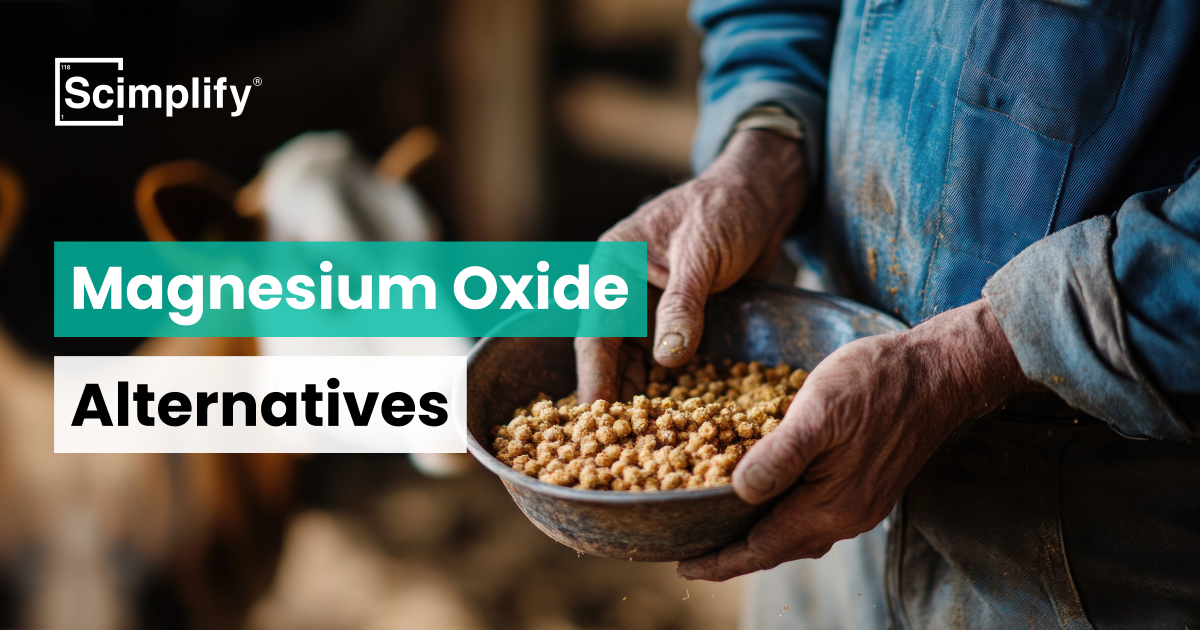Magnesium Oxide - Alternatives, Pros and Cons
Magnesium Oxide (MgO) is widely used in industry, agriculture, healthcare, and construction. Alternatives like calcium oxide, magnesium hydroxide, dolomite, calcium carbonate, magnesium sulfate, and zinc oxide offer varying advantages in cost, safety, reactivity, and environmental impact.

Magnesium Oxide (MgO) is a common mineral with commercial applications in the manufacturing sector, environmental management, agricultural uses, pharmaceutics, and construction. It is known to be heat-resistant, neutralizing, and nutritious, and thus forms a major part of numerous processes. However, over the years, the demand for cheaper, safer, and more environmentally friendly alternatives has grown.
Other substitutes, such as calcium oxide, magnesium hydroxide, dolomite, and calcium carbonate, all have different advantages and disadvantages in different application scenarios.
Request Your Magnesium Oxide Sample Today!
Alternative Products of Magnesium Oxide
1.Calcium Oxide (Quicklime, CaO)
Calcium Oxide is a highly reactive alkaline compound widely used in environmental remediation, chemical processes, and construction. Its fast action in pH neutralization makes it a common industrial substitute for magnesium oxide.
- Pros:
- Cost-effective and readily available
- Fast, efficient pH neutralization
- Widely used in construction and cleanup operations
- Cons:
- Hazardous handling due to heat release upon contact with water
- Dust generation requires control
- More caustic than MgO, increasing safety risks
2.Magnesium Hydroxide (Mg(OH)₂)
Magnesium Hydroxide is a milder alkaline compound used notably in pharmaceuticals and wastewater treatment. It provides safer handling and environmentally friendly properties compared to MgO.
- Pros:
- More eco-friendly and safer
- Produces less heat when dissolved
- Common in wastewater and medical applications
- Cons:
- Slower neutralization reaction
- Requires larger quantities for equivalent effect
3.Dolomite (Calcium Magnesium Carbonate, CaMg(CO₃)₂)
Dolomite is a natural mineral combining calcium and magnesium, used mainly in agriculture as a nutrient source and soil conditioner. It is less reactive but effective in gentler soil amendment applications.
- Pros:
- Supplies both calcium and magnesium nutrients
- Gentle on soils
- Abundant natural minerals
- Cons:
- Less reactive than MgO
- Not suitable for rapid pH adjustment or refractory uses
4.Calcium Carbonate (Limestone, CaCO₃)
Calcium Carbonate, also called limestone, is commonly applied as a soil neutralizer and neutralizing agent in industry because it is a safe, convenient, and readily available source of neutralizing agents.
- Pros:
- Low cost and environmentally safe
- Effective for soil pH and mild neutralization
- Easy to handle
- Cons:
- Slower reaction rate than MgO
- Lower neutralizing capacity per unit weight
5.Magnesium Sulfate (Epsom Salt, MgSO₄)
Magnesium Sulfate is a highly soluble magnesium compound favored in agriculture and healthcare for nutritional supplementation, though less suited for neutralization.
- Pros:
- Highly soluble and absorbable
- Widely used in agriculture and medicine
- Cons:
- Ineffective for acid neutralization or refractory applications
6.Zinc Oxide (ZnO)
Zinc Oxide is a multipurpose compound that has antimicrobial and healing abilities and is utilised in specialty chemicals and pharmaceutical industries.
- Pros:
- Antimicrobial and drug benefits
- Useful in specialty industries
- Cons:
- Higher cost
- Limited use at an industrial scale
Conclusion
Magnesium Oxide serves as a base for the industrial and health-related sectors. Substitutes such as calcium oxide, magnesium hydroxide, dolomite, and calcium carbonate have their own advantages in regard to safety, cost, and application specificity. Well-managed assessment of these substitutes will provide optimum performance and environmentally friendly use of the targeted applications.


